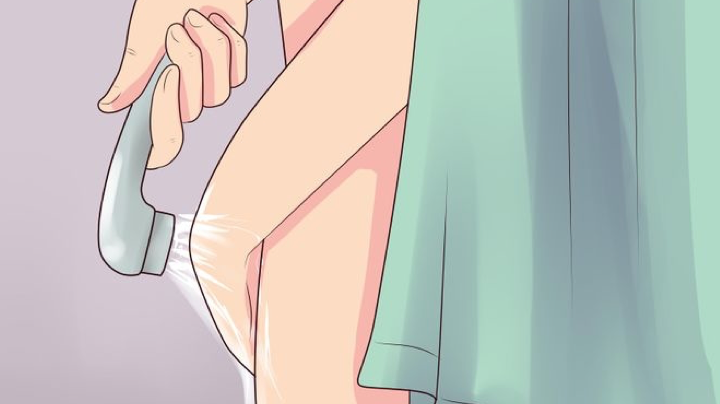
A. Personal hygiene for women
- The vagina is able to clean itself no special care is needed, other than washing the external genitals.
- Do not put anything like douches into the vagina, as the delicate skin can be damaged.
- Here are some personal hygiene suggestions for women:
Menstruation - wash your body, including your genital area, in the same way as you always do. Change sanitary napkins (Pads) regularly, at least four to five times a day. Always wash your hands before and after handling a pad.
Cystitis - is an infection of the bladder. This is a common condition for sexually active young women. Urinating after sexual intercourse can help to flush out any bacteria that may be in the urethra and bladder. You need to consult with physician especially if recurrent or persistent urination occurs.
Thrush - some soaps and detergents can irritate the skin of the vagina, and make thrush infections more likely. Some people find that they often get thrush when they use antibiotics. Use mild soap and unperfumed toilet paper. Avoid tight, synthetic underwear. Try cotton underwear, and change regularly. There is medical treatment for thrush, so talk to your doctor or pharmacist.
A. Personal hygiene for men
Men need to clean their genital areas. Ensure cleanliness of the glans and the inner side of the foreskin as a white substance called smegma may be present here. Smegma consists of dead skin cells, oils, body fluids and bacteria. The presence of this substance can cause infections and foul smell.
If you are uncircumcised, you need to pull back your foreskin as far as it is possible, without causing any discomfort. The pulled foreskin will expose both the glans, which need to be gently cleaned with lukewarm water. Clean your genitals both before and after the sexual act to prevent infections.
Taking care of your foreskin should become a habit. Make sure you:
Clean underneath the foreskin. Without regular cleaning, a build-up of a whitish-yellow substance known as ‘smegma’ can occur under the foreskin. Smegma can look like pus to the untrained eye. It can increase the susceptibility to HPV infection which is associated with cervical cancer.
Common foreskin problems
Inflammation – sore and red foreskin. Common causes include forced retraction, irritants such as bubble baths or dirty nappies.
Infection – the most common include posthitis and balanitis. Posthitis is infection of the foreskin, usually caused by fungus thriving in the hot and moist conditions. Balanitis is infection of the foreskin and glans, and is usually caused by poor hygiene. Smegma encourages the growth of infection-causing germs.
Chronic infections – for some males, posthitis or balanitis tend to recur. A complication of chronic infections is scar tissue, which could stick the foreskin to the glans and make retraction impossible. Chronic infections of the penis and foreskin also increase the risk of urinary tract infections. Repeated kidney infections can affect kidney function.
If you felt something abnormal about your penis such abnormally tight or retracted foreskin or abnormal growth on the foreskin, do not hesitate to consult with doctors.
Zipper trauma – the foreskin (or other parts of the genitals, commonly the scrotum) gets caught in a zipper. Wearing underpants is the best prevention.
Circumcised men too need to maintain hygiene, as the absence of foreskin can cause the tip of the genital area to come in direct contact with sweat and bacteria.
Clean your genitals both before and after the sexual act to prevent infections.
A. Clean Underpants
Choosing to remain in your sweaty clothes and underwear after a workout is unhygienic. Even if your sweat drenched clothes have dried, they still pose risk for you as bacteria and yeast flourish in sweat and yeast infection is not far. Sweat and dust can block the skin pores around your private area and cause folliculitis, which are inflamed and infected hair follicles. Do not wear tight underwear or tight fitting jeans for a long time as they trap sweat and attract breeding of bacteria. Prefer natural fabrics, such as cotton instead of synthetics for your innerwear.
A. Don't Hold Pee In
Never hold on the urge of going to the washroom to urinate, especially before practicing sex. Urinating makes your bladder get rid of bacteria and toxins that thrive in the urinary tract. Delaying urination speeds up breeding of bacteria, which may lead to infections.
